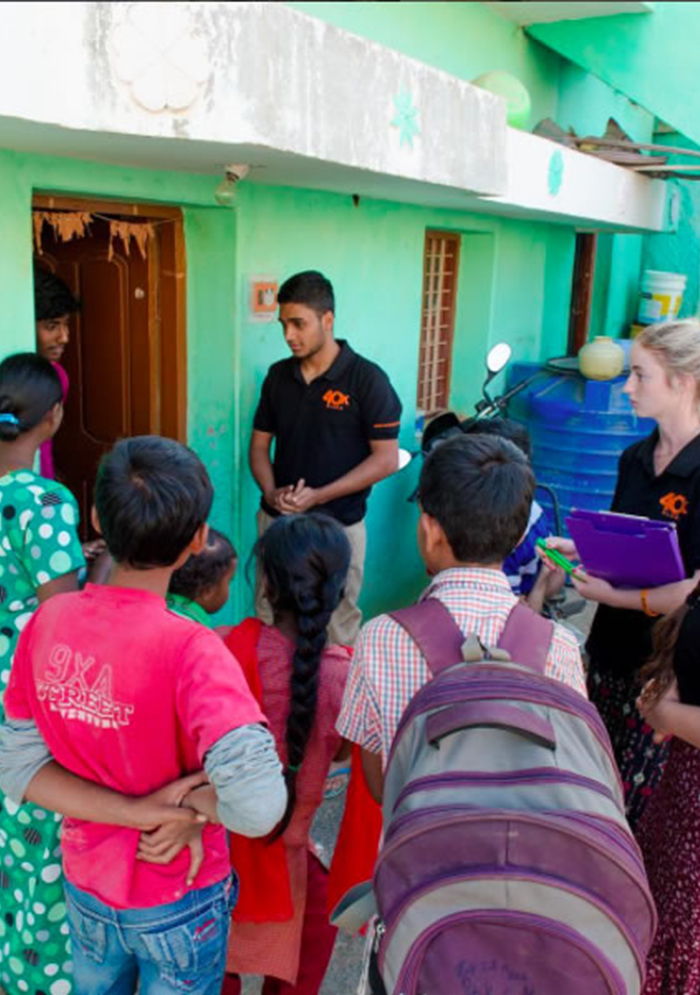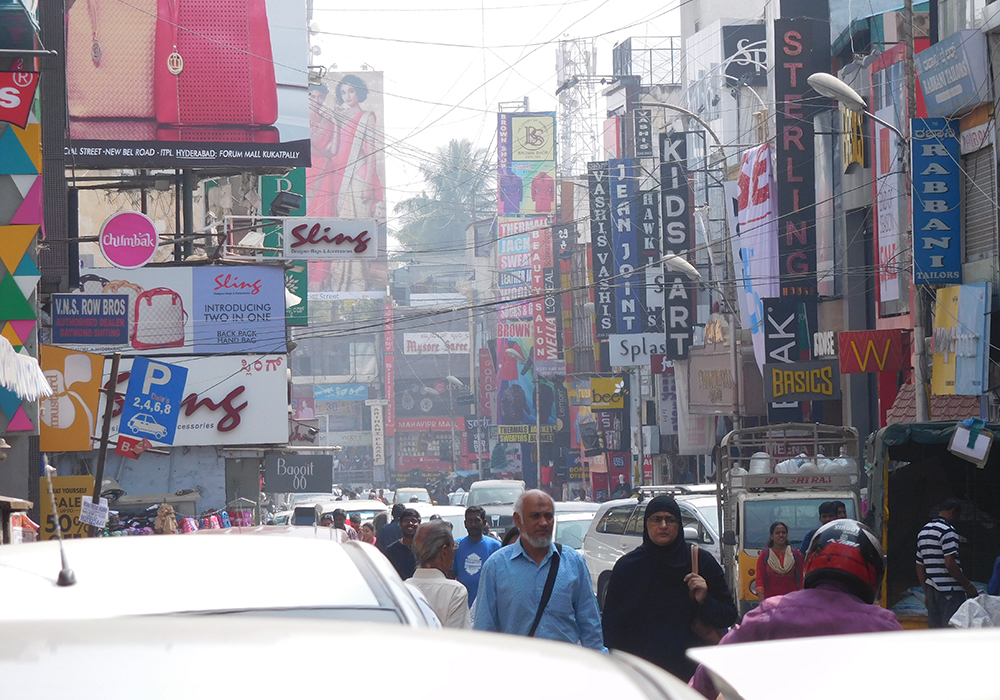BCom students design employability initiative in India
By Niamh Cremins
Ten years ago, uni-student Clary Castrission visited Bangalaru in India. Confronted by the education problems he witnessed in the quarry villages surrounding the city, he fundraised $40 000 and, with some help, built a school.
Unfortunately, this bold action did not solve the issue. The communities needed better access to high quality teaching - something no amount of bricks and mortar could solve. Now CEO of 40K Globe, a name derived from his first foray into social entrepreneurship, Clary brings the brightest university minds to work on education projects in rural villages surrounding Bangalaru.
This year, for the first time, seven Bachelor of Commerce students joined the 40K team as part of their International Business Experience subject, funded through the Federal Government’s New Colombo Plan.
Working in multi-disciplinary teams, students mostly from business, education and arts backgrounds work with communities to expand the education social enterprise that 40K has developed.
For final year BCom-er Emma Poole, the experience pushed her well outside her comfort zone, challenging her in ways she never imagined. The month in India has given Emma the cultural awareness and confidence to pursue her passion for consulting and positive social change.

“40K was an opportunity to combine social impact, consulting experience and travel to a new and very different country to Australia – it seemed too good to be true,” Emma explains.
Nine hours later than planned, due to the unexpected closure of Bangalore air space, Emma and her travel companion Bree Postma (BCom) arrived in India to contend with overpriced taxi fares, no mobile phone connection and a daunting trek to find their hotel. It was an overwhelming experience.
“We had two full days of training from 40K before we left Australia,” Emma says. “We got a crash course in what to expect, as well as important cultural and business customs. Our lecturer Dr Ben Neville worked with us to help apply the principles and concepts learned in class on-the-ground in Bangalore.
This was extremely valuable but no training completed in Australia could truly prepare us for the chaotic, colourful experience that is India.”
Over time, our team found that agility, adaption and developing an expectation of things not going according to plan (for better or for worse) were key to remaining positive and successful in our project work. Emma Poole
Once the group had all arrived they made their way to different villages to develop; ‘Baby Bag’ – nutrition and maternal health workshops, ‘WASH’ – water, sanitation and health education programs, ‘PLUS lite’ – afterschool English education for children, and ‘Employability’ – adult education and employability skills training. Emma and her team were charged with ‘Employability’ and made the 35km journey to Mylanahalli to get started.
Described by Emma as a “hand up rather than hand out approach”, the teams recruit local professionals and entrepreneurs to help deliver, maintain and scale up the project.
Work began quickly as the ‘Employability’ team began meeting with Mylanahalli locals, conducting surveys and focus groups.
“We were very fortunate to have Dhanush Girish, another BCom student, on our team because he speaks the native Kannada, so was able to converse with the locals easily and lead the research team in their needs analysis,” says Emma.
The team found the basic level of English skills and general education among the villagers was quite high but there was a significant gap in their ability to communicate their higher-education in English to potential employers. They found this was a significant factor in preventing locals from securing jobs through the application and interview process. This discovery defined the group’s project – creating an English for employability course for adults; later renamed 40Ke.

Over three weeks, the team developed 40Ke, using the British Council’s ‘Job Seeker’ videos, explicitly designed to aid employment in the Indian job market, and developed additional resources and lesson plans for a 12-week and 6-week program. Simultaneously, they consulted with the community to gauge interest in the program. The team sourced a local facilitator to run the program, secured the use of 40K’s PLUS Pod and they were ready to go.
As the first information evening rolled around the team’s excitement was building. They expected more than 20 locals who had registered their interest to come along. Unfortunately, only five signed up for the first program. This was an important cultural learning for the team.
“We were really disappointed to see such a drop off after the initial enthusiasm,” says Emma. “However, we were told that such a drop off from interest to actual payment and participation is common in the villages. Despite the setbacks of the first round of 40Ke, I really hope the program will continue to be implemented and adapted around other 40K Plus Pods.”
Due to other commitments, only one participant, a 42-year-old tailor named Shailaja was able to complete the course in full, but his experience has reignited the tutor’s passion to really grow 40Ke.
“I can write and read English but I want to learn to speak English fluently and that’s why I joined the adult literacy class,” says Shailaja.
I have really enjoyed the course! I learnt some grammar and about sentence construction. What I have really enjoyed is learning how to speak in English. We still have a long way to go, but for me this will be very useful. Shailaja, tailor
“My children too are asking me to speak in English. It helps me to teach my children, help them complete their school homework. I will be able to speak in English when I attend parent-teacher meetings at my children’s school.
“The village needs courses like this.”
Bachelor of Commerce students will continue to work with 40K to deliver best practice social enterprise initiatives.
Applications to take part in the International Business Experience subject this July have now closed, but keep an eye out next semester for the information session for the next program in January 2018.